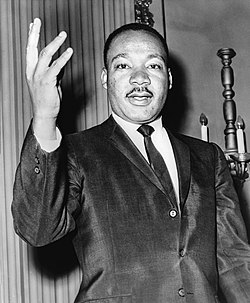For this post, I am going to study a section of dialouge and give some insight into what I believe that the people mean. In this section of text, we find Perry and Gram, shopping for school supplies. Perry starts off the conversation by taking the Journal that Gram just put into the shopping cart.
"What's this? It has nothing inside." -Perry
When Perry says this, he is subtly questioning the judgement of Gram. This quote shows that he is doubting the need to have a book that has no content in it. However, he doesn't bring it up in a malicous way. Instead of following the question with a direct answer such as this, "It's just a blank book with no purpose," (which people tend to do), he simply justifies what he was saying. The purpose of the sentence is to give the question a reason to be asked. "What's this?" does not have any content and could be considered a stupid question, but Perry gave the question a little depth, and put his innocent tone into it.
If I were to put Perry's thoughts when he said this quote, I believe that it would seem like this, "Why would anyone make a blank book? Books are for reading, but this book has no words to read."
"It's a Journal. A scrapbook for words. You have to do the writing." -Gram
There were many ways Patricia Wood could've made Gram explain to Perry what a journal was, but the way she chose was the most appropriate. If you've read any of my other posts on this book, you know that Perry isn't the sharpest kid in town. He does, however, learn very quickly when put into terms that he can understand. This shows how much Gram truly understands Perry. I also believe that when Gram calls the journal, "A scrapbook for words," she is trying to give Perry a motivation to do the scrapbook. She is trying to make it fun. On the flip side, she says the word "have to" in the last sentence which seems to instigate some feelings that would make it seem like a chore. Both ways, this quote truly shows how much Gram really understands who Perry is, and how to show him something new.
I believe that if we turned her implications into literal sentences it would sound like, "The point of a blank book is to write in it. Sometimes writing in it will be fun, other times it will be dreadful."
"What a gyp. Did it cost less than book-book?"-Perry
This quote's is rather childish. Remember, Perry is a grown man. This quote highlights how old Perry is mentally. His mind processes data like an eight year old. He still could not see the need for a blank book! Let us look at the word "gyp". The book was published around 2008, which makes the book quite recent. Personally, I don't hear the word "gyp" as often as some of it's alternatives such a
s "rip-off" If we take a look at the Author's (Patricia Wood) personal history we see that she recalls a place by the name of "Casey's Drive-in on Aurora Avenue". She also recalls that "For a dollar, you could buy a deluxe hamburger, fries, and a milkshake -- and get change back." The word gyp, might have come from a time in the past. It has to be recent enough that the price of food as significantly changed, but distant enough from the present that "gyp" is still a word that is used, even if it is not used often. I am not entirely sure, but I believe that she simply brought that word back into her memory when she was writing this passage. Now look at the question that Perry has proposed. If you haven't realized it yet, every quote that Perry spoke in this (admittedly small) dialog has proposed some sort of question. This just further emphasizes Perry's curiosity and the way his mind processes data, with many questions. Once again, we can find more evidence of Perry's childlike mind in the word "book-book". That screams child to me, and it should to you too.
I do not believe that Perry had any hidden meaning in this quote. After all, he isn't devious enough to hide any negative implications in a statement. Maybe you'll find something that I didn't see. Comment below if you have and I'll update the post giving you credit.
(Side Note: Everett, Washington is the city that Patricia Wood's child lives in, and also happens to be where the book takes place.)
"No, as a matter of fact it costs more."
The wording of this quote gets to me. It has that classic motherly feel to it. The phrase, "as a matter of fact" seems to have the same tone as Gram's famous "Don't be smart." Another part of this statement seems to have some implications, but it's not a single word or phrase. It's the length of the sentence. Consider, how short the sentence is. I believe that Gram is starting to get impatient (considering that she is a grown man's grandmother, she must be very old).
If we take Gram's intentions and bring it to words, it might sound like, "Ugh... Don't be smart. It actually costs more."
We have learned a lot from these characters by looking at this passage of dialog (I promise to try not to focus on characters again, though I fear it might be impossible. Tonight I will read another 75 pages of the story, maybe another passage of dialog will catch my eye, maybe a new plot twist will take place. Either way, I'd better start reading.




